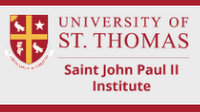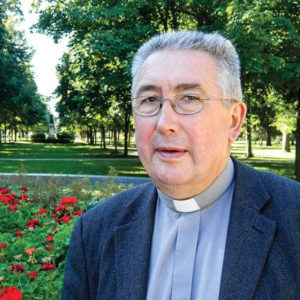7 th, 2023

The Eucharist for the life of the world: Eucharistic renewal in the school of John Paul II and Benedict XVI.
In response to the challenges of the Catholic Church in the United States and its pastoral program focused on Eucharistic renewal, Fr. Bogusław Migut will speak about The Eucharist for the life of the world: Eucharistic renewal in the school of John Paul II and Benedict XVI.
Pope Francis in the Apostolic Letter Desiderio Desideravi writes that “With post-modernity people feel themselves even more lost, without references of any sort, lacking in values because they have become indifferent, completely orphaned, living a fragmentation in which an horizon of meaning seems impossible.”
WHEN: Tuesday, November 7th, 2023 at 7:00 PM CDT
WHERE: Link Lee Mansion @ University of St. Thomas, 3800 Montrose Blvd., Houston, TX 77006
About the lecturer
Fr. Prof. Bogusław Migut, Professor at the John Paul II Catholic University of Lublin, Poland and Head of the Chair of Theology of the Liturgy. During the academic year 2023-2024, he holds the position of Visiting Professor at the University of St. Thomas, Houston, TX. From the beginning of his research in systematic theology, he was focused on liturgy and sacraments. His intention was to create a synthesis of theology around the liturgy. He called such theology mystagogical theology.
Prof. David Fagerberg (University of Notre Dame) witnesses that “Fr. Migut is a superb guide through these clarifications, identifying significant scholars and schools of thought (including the situation in Poland). His own model of mystagogical theology invites a fruitful opportunity to appreciate the gains that are received from synthesizing liturgy and theology.”
He concentrates on researching the Roman school of liturgical theology focused on the inside of the liturgical celebration and American school of liturgical theology, also called “Schmemann-Kavanagh-Fagerberg liturgical theology” after its creators which does not concentrate on the liturgical celebration itself but applies it as a paradigm of God’s worship to Christian doctrine, and to a greater degree, to life (liturgical asceticism).

